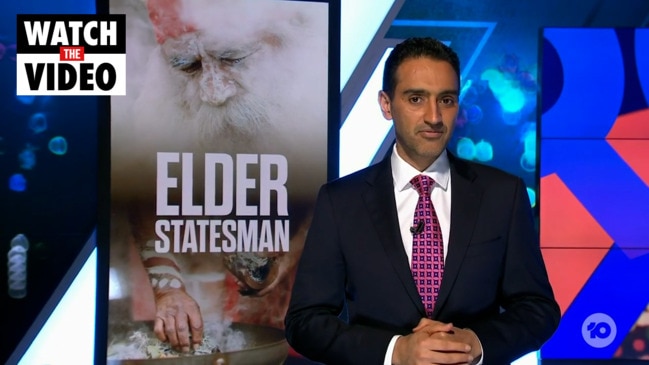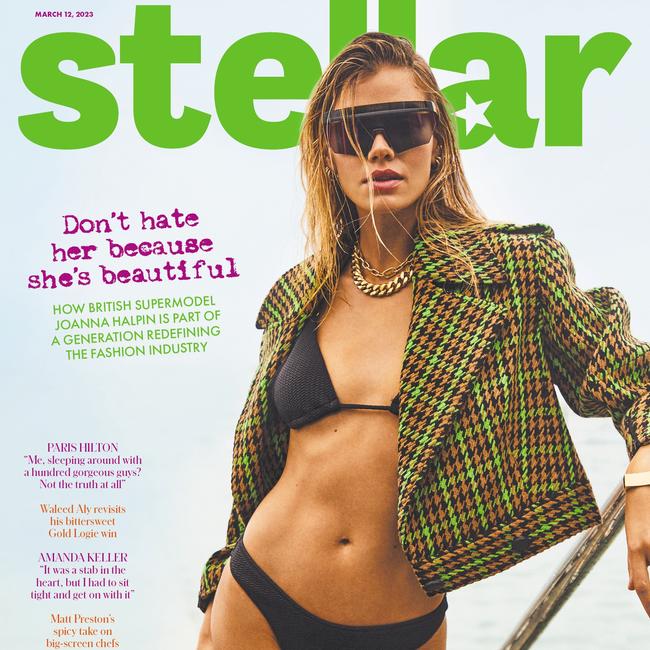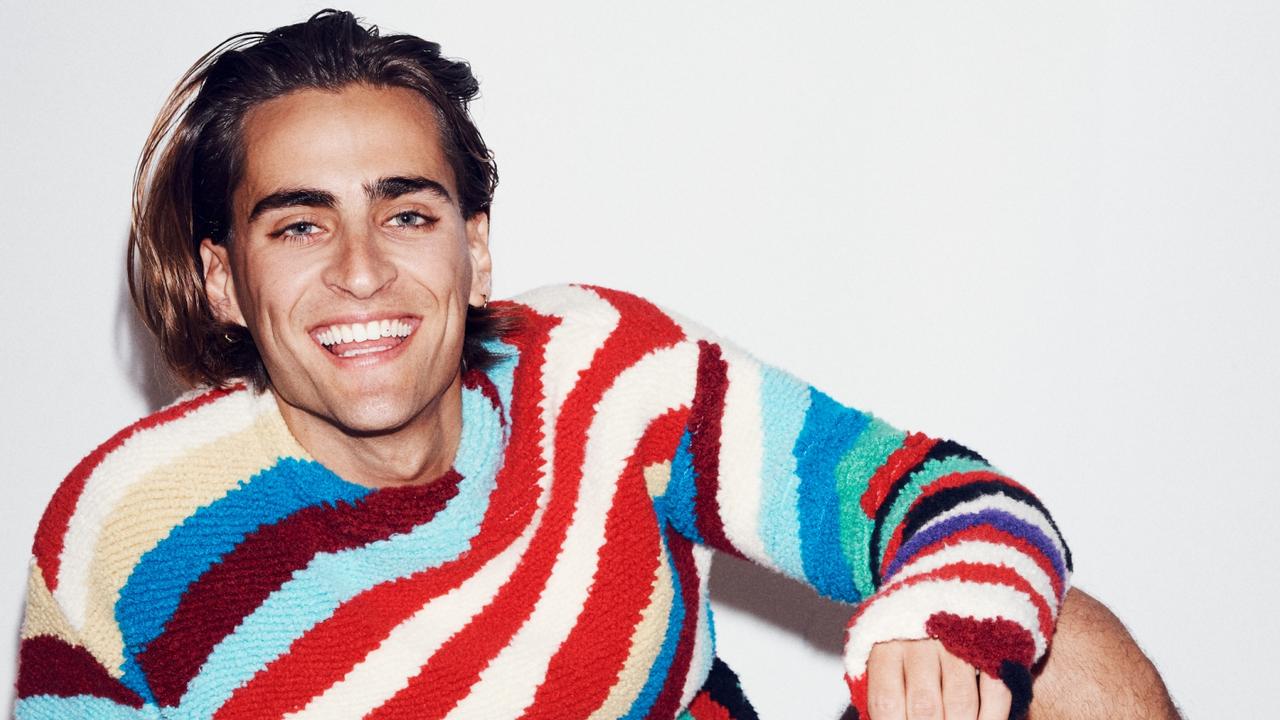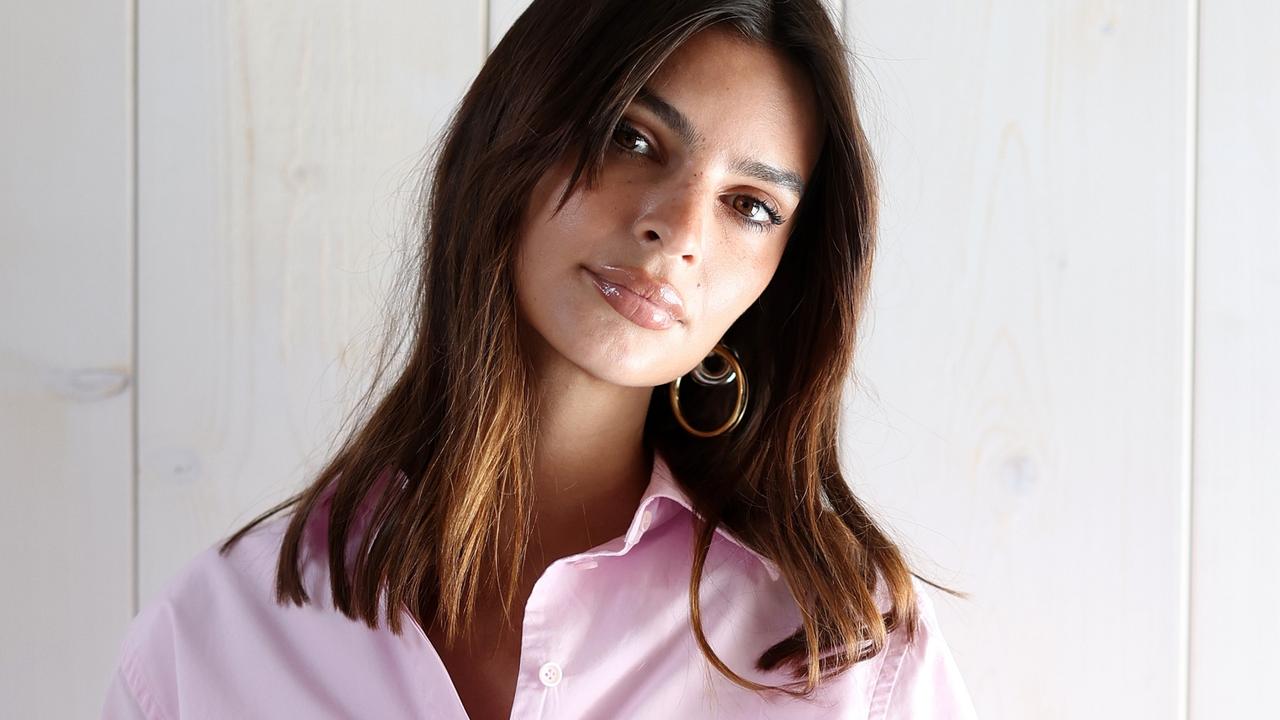Waleed Aly: ‘You get in trouble when you curate everything you say’
The Project co-host Waleed Aly discusses ratings drop, his bittersweet Gold Logie, and his relationship with former co-host Carrie Bickmore, in a new episode of the Stellar podcast, Something To Talk About.

Stellar
Don't miss out on the headlines from Stellar. Followed categories will be added to My News.
In a new episode of the Stellar podcast Something To Talk About, we sit down with The Project co-host for a rare interview to discuss the recent changing of the guard at the long-running Network 10 panel show, reflect on his bittersweet 2016 Gold Logie win and discover what he learnt from the recent death of his mother-in-law.
On whether he keeps up with his former Project co-hosts Carrie Bickmore and Peter Helliar:
Waleed Aly: “We have kept in touch. In fact, [Pete] was over at my place on the weekend. I’ve caught up with Carrie as well, and I would hope that is the way it always is, because the one thing I can genuinely say about the show is that the relationships aren’t fake.
“I gather that in showbiz they are a bit [fake] and maybe if things went a different way, they would be on our show, because we’d have no choice. You know, we’d secretly hate each other but have to smile. But… it just wasn’t like that. In fact, if anything, when we were in the ad break, it got even looser and wilder.
“I think they’re quite deep relationships in a way, and busyness may get in the way. We all know people who we love, who we’ve lost contact with, just because life got in the way – and that’s not a good thing. But it does happen. And so maybe that will happen, but it doesn’t feel like that’s what’s happening at the moment.
“I feel their absence, but when you’ve got a new group of people to work with, you almost don’t have time for that, especially not when you’re in the middle of it.”
On the advice he gave to Sarah Harris, who joined The Project as a co-host in January:
WA: “One thing I said to her early on was: don’t read the good stuff and don’t read the bad stuff. You can’t say, ‘I’m just not going to read the bad stuff, but I will read the good stuff.’ It’s not consistent. It’s very selective. And I don’t think it’s possible.
“At some point you’ve got to make a decision that this isn’t relevant to what I’m doing, and I don’t want that to infect the job, because you start to get into trouble when you curate everything you say and do for this other narrative that’s out there and that often actually has very little to do with what you’ve actually done. It’s clickbait.”
On suddenly finding himself the longest-sitting panel member on The Project (Aly co-hosts the show Monday to Thursday from 6.30pm on Network 10 and 10Play):
WA: “That’s the weirdest bit. I always felt that I was the work experience kid, the competition winner who got to sit down on the desk because, especially with Pete, [he] had been around in my living room forever.
“Carrie, only slightly less so – she was on Rove [Rove McManus’s weekly variety show, on which Bickmore made her TV debut in 2006 as ‘Carrie at the newsdesk’], she’d done radio stuff. To suddenly be among that, I always felt like I was the person who shouldn’t be there.
“So the transition now to being the one who’s been there the longest, to be honest, I don’t feel entirely comfortable about it. I feel a bit like, why are you looking at me like that? Don’t look to me for guidance.”
![Waleed Aly: ‘One thing I said to [Sarah Harris] early on was: don’t read the good stuff and don’t read the bad stuff.’ Picture: Sam Bisso for <i>Stellar</i>.](https://content.api.news/v3/images/bin/0366c4275ca079afb866e53aa3b5b713?width=650)
On winning the Gold Logie in 2016, and using his acceptance speech to highlight discrimination, claiming his award on behalf of people “with an unpronounceable name”:
WA: “I was nominated, but Lee Lin Chin was nominated, as well. And the commentary started coming out, particularly targeting the two of us. It was suffocating. So when I got up to give that speech, I thought, oh, I kind of have to acknowledge that this has happened.
“I was responding to what I felt was a situation that had been imposed, that I couldn’t escape. I wanted to do it in a reasonably light way. I think what I wanted to say was there’s nothing unusual about this.
“Well, there [was] something very unusual about it, but it’s not what anyone was talking about. And the only people who recognised this was, like a year later – I got interviewed by a British magazine and they said to me, ‘How does a public intellectual win?’
“That’s what was weird about it. I was this guy who came out of academia. I’m not a soap star. I’m not meant to even be in this conversation. But we were singled out [and] it became much more about race [and] identity politics.
“So it was a mixed experience, because that was a sad thing to go through. It was the loveliest compliment, and it’s still touching – and I got nominated a couple of times since, so there’s something. I acknowledge that. But I don’t look back on that time in my life and go, if only I could revisit it. I’m kind of glad to have escaped it, in a way.”
On the comments he made that same year following the Bastille Day terrorist truck attack in Nice, France, which prompted talk among some public figures about closing Australian borders to Muslims. In response, Aly called upon people to stop “encouraging the inertia of outrage”:
“I almost forgot about this episode; you’re forcing me to dig deep to remember that. There were a lot of people quite angry at me for taking that position. They thought that was a capitulation, whereas it wasn’t.
What I was trying to do is say, ‘OK, let’s take a pause, because this is the way our public discourse is going.’ What I was asking was for everybody to say, ‘Is there a way we can try to show one another [an] almost radical preparedness to fully understand and inhabit what’s driving [a person to make such statements]?’
I think a lot of people saw it as me saying that Muslims just have to suck it up. That’s not what I was saying. And I know – because I’m one of the people getting bashed up in that context personally. Which is also why I felt I could say it.”
![Waleed Aly: ‘I don’t walk around reminding [my wife] that she’s now married to a Gold Logie winner’ Picture: Sam Bisso for <i>Stellar. </i>](https://content.api.news/v3/images/bin/1130e0f37c8afdc2e0561ed53fed0cad?width=650)
On how his wife of 20 years, fellow academic and TV presenter Dr Susan Carland (with whom he has two children, daughter, Aisha, 19, and son, Zayd, 15), has navigated his fame:
“It hasn’t had much of an effect, and I’m happy to be able to say that. Things have changed in that I’m more of a public figure than I was. But as far as our relationship? Life in our house [has] been pretty steady. I don’t walk around reminding her that she’s now married to a Gold Logie winner. If I did, she would probably find that hilarious, and it wouldn’t work…
“We’ve worked hard to keep things pretty much as they always were. If things have affected our relationship along the way, that’s usually nothing to do with work. I’m sorry if that’s a disappointing answer, [but] honestly, I can’t think of another.”
On the recent death of his mother-in-law, Jan, following a long battle with cancer:
“Susan was there for the last few weeks, caring constantly, providing the medication… It was an exhausting process. But she also said it was a huge honour. And it made me realise: this was really hard and really sad and the effects of it are lingering. But it was also beautiful. And if you stop and think about it, there’s so much you can learn that should totally change the way you live your life.
“It’s just that we never think about that moment. We don’t think about the fact that we’re going to die and what actually matters. Occasionally we throw out, ‘Well, you won’t talk about that on your deathbed.’ but it doesn’t penetrate our hearts when we say it.
“The death of a parent [is] always a profound moment. Anyone who’s lost a parent knows you’re never ready and the world is never the same again. When death is a part of your life in a way you can’t escape, [and] it’s right in front of you, you immediately start reflecting on a level that’s far deeper and far richer, and you realise pretty quickly: that’s how I should be living.
“We’re very bad at that. And it takes something like that to remind you. It’s a really valuable lesson, as sad as it is.”

Originally published as Waleed Aly: ‘You get in trouble when you curate everything you say’




